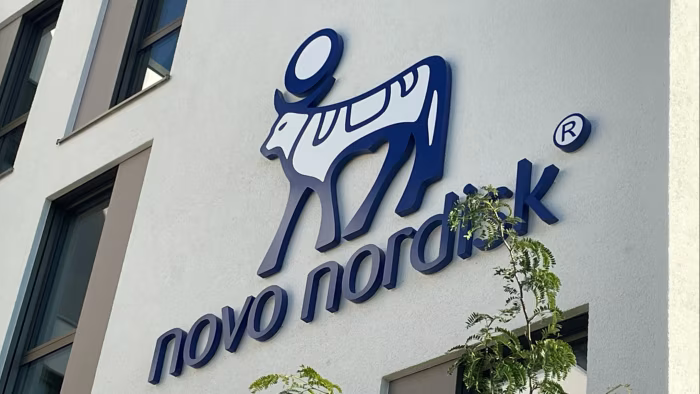Shares of Novo Nordisk plummeted as much as 24% on Friday following the release of underwhelming trial results for its experimental weight-loss drug, CagriSema.
By 12:30 p.m. London time, the stock had recovered slightly but remained down by 18.8%. Meanwhile, shares of rival pharmaceutical company Eli Lilly rose as much as 10% in US premarket trading before stabilizing around a 5% increase.
Novo Nordisk’s CagriSema, a next-generation weight-loss drug, was expected to be a major breakthrough in the obesity treatment market. The late-stage phase 3 trial, which included approximately 3,400 participants who were obese or overweight with at least one other health condition, showed that patients on CagriSema lost an average of 22.7% of their body weight over 68 weeks.
While this was an improvement over the 16% weight reduction achieved by Novo’s blockbuster drug Wegovy, it failed to meet the company’s projected weight loss target of 25%. This shortfall disappointed investors, leading to a massive sell-off of Novo Nordisk shares.
Despite the market reaction, Novo Nordisk emphasized that the trial results still positioned CagriSema as one of the most effective treatments available.
“We are encouraged by the weight loss profile of CagriSema demonstrating superiority over both semaglutide and cagrilintide in monotherapy in the REDEFINE 1 trial,” said Martin Holst Lange, Novo Nordisk’s executive vice president for development, in a statement.
Lange highlighted that only 57% of patients in the trial had reached the highest CagriSema dose, suggesting potential for even greater weight loss with broader dosage optimization. Novo Nordisk said it plans to further explore the drug’s weight-loss potential and aims to submit it for regulatory approval by the end of 2025.
Additional results from the second phase 3 trial, REDEFINE 2, which focuses on adults with type 2 diabetes who are overweight or obese, are expected in the first half of 2024.
Novo Nordisk’s setback was seen as a boon for its competitors. Shares of Eli Lilly, which markets the obesity drug Mounjaro, rose 6% in early US premarket trading before leveling off at a 5% gain. Eli Lilly’s position in the weight-loss drug market has been strengthened by recent clinical data showing its new drug, Zepbound, delivered superior weight-loss results compared to Novo Nordisk’s Wegovy.
In a recent head-to-head trial, Zepbound demonstrated a 20.2% weight reduction after 72 weeks, compared to Wegovy’s 13.7% weight loss over the same period. This reinforced Eli Lilly’s growing dominance in the obesity drug space.
Other players in the market also saw gains. Viking Therapeutics, which is developing its own obesity drug and is seen as a potential acquisition target, saw its shares rise by 12%. Amgen, another company working on weight-loss treatments, also experienced a modest increase in its stock price.
Novo Nordisk’s stumble comes as demand for weight-loss treatments continues to grow. The global obesity drug market is fiercely competitive, with pharmaceutical giants like Novo Nordisk and Eli Lilly vying for market share.
For Novo Nordisk, the success of CagriSema was seen as a crucial step in maintaining its leadership position in the obesity treatment market. Its flagship drug, Wegovy, has seen massive demand, but rivals like Mounjaro and Zepbound have been rapidly catching up.
The competition intensified earlier this year when Eli Lilly’s Zepbound posted stronger weight-loss outcomes than Wegovy, further pressuring Novo to deliver with CagriSema. The Danish company’s ability to rebound from this setback will likely depend on the success of its ongoing trials and its ability to refine the drug’s dosing strategy.
CNBC, the Financial Times, and Investor’s Business Daily contributed to this report.









